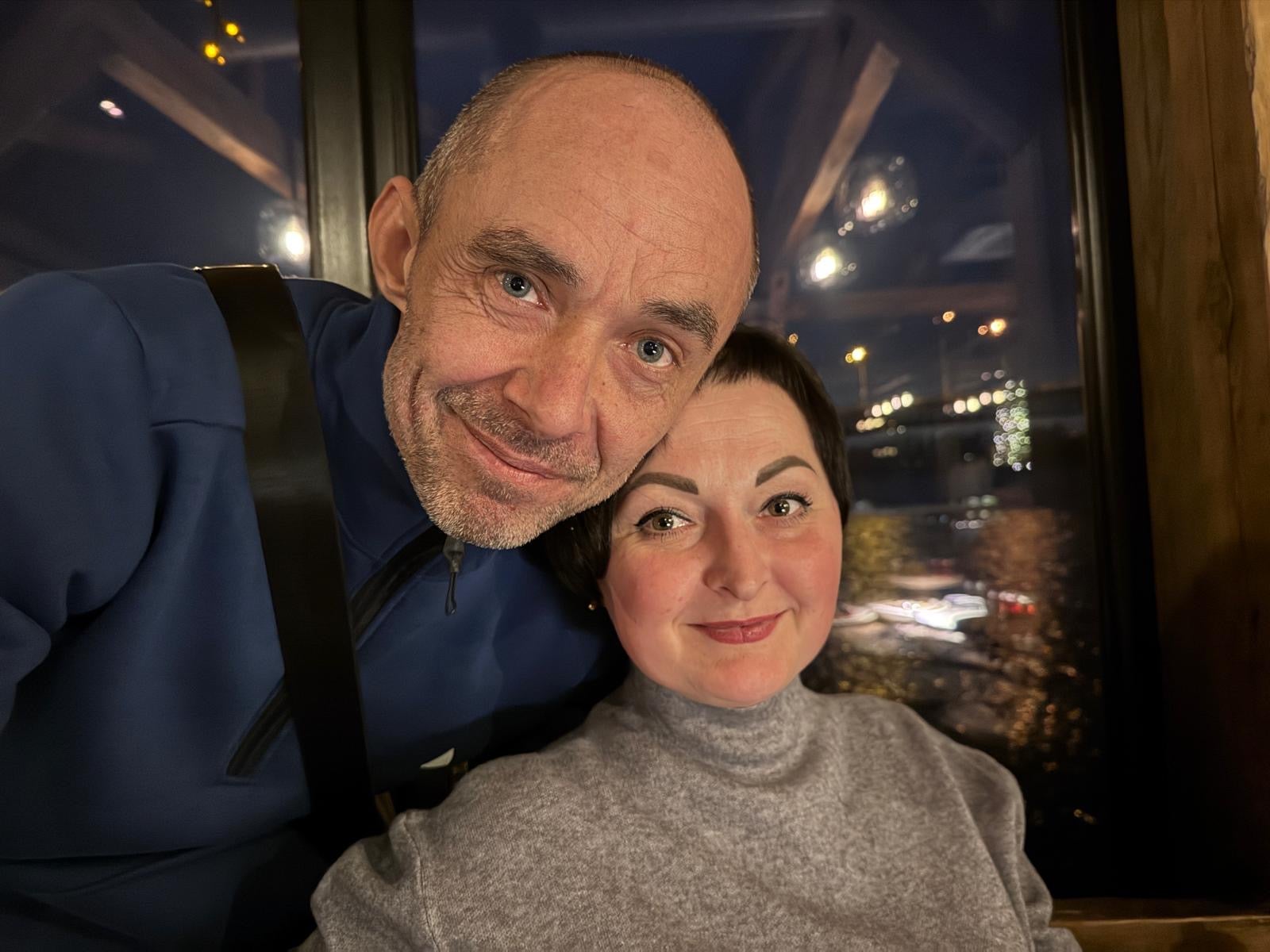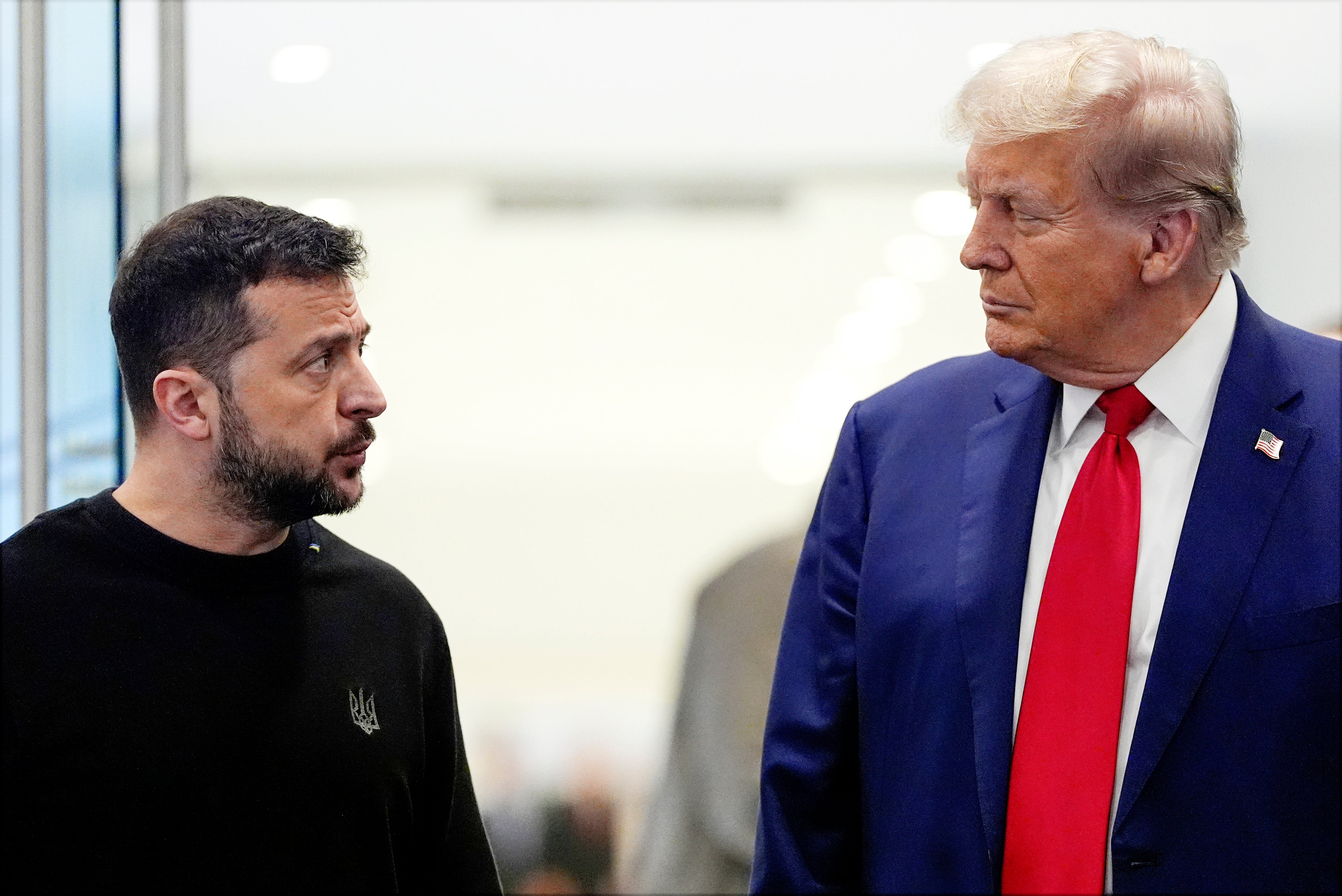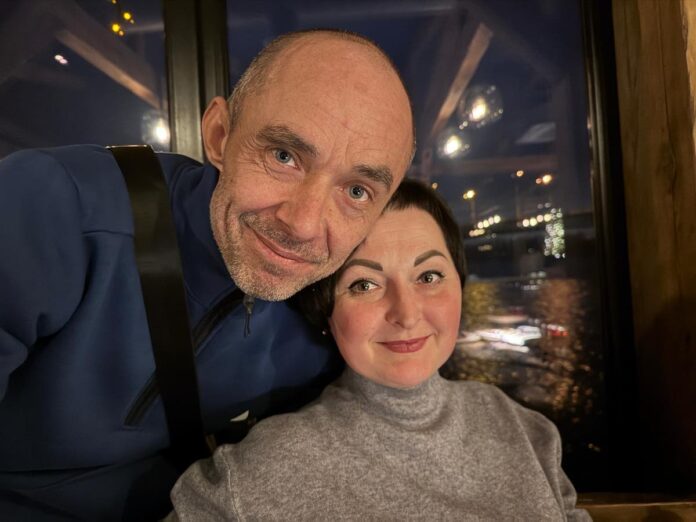Serge in his blue anorak, Olena in her black faux fur jacket – an inconspicuous couple on a trip in Kyiv to show their daughter the capital they did so much to save three years ago.
The Kravchenkos’ clandestine work as part of self-starting groups of volunteers, heroic by the standards of any war, turned back two invading Russian convoys as they converged on Kyiv in 2022. Serge and a small group of comrades, veterans of Russia’s 2014 invasion of Ukraine, took on Putin’s invaders in hit-and-run raids using pickup trucks, weapons they found in a warehouse in Sumy province.
Now Donald Trump is threatening to turn the course of history against Ukraine, by cutting US military support to the embattled nation. This could ultimately allow Vladimir Putin to hang on to the 20 per cent of the country it has already taken as part of a future peace deal forced on Kyiv.
We can’t have a peace deal of any kind with Russia,” Serge said on Saturday, two days before Mr Trump’s inauguration. “If we freeze the front lines then Putin will just re-arm and invade again. And now Russia is better equipped, has better tactics, knows how the weapons we’ve had from Nato work. He won’t stop and so neither will the killing.
He should know. He volunteered in 2014 to fight the Russians, re-enlisting in early 2022 to join a small band of bandit-like resistance fighters who reinvented the kind of dare-to-win tactics which made Britain’s SAS the model unit for special forces around the world.

Serge and Olena Kravchenko took on their Russians in Kyiv (Supplied)
Serge, as a native of Sumy, was key to the success of the unit of about eight men. Olena, his wife, perhaps more so.
Thick snow muffled the crack and crunch of the movements of Serge and a comrade as they crept through Russian lines, using the forest as cover to meet up with Olena in early March, just a couple of weeks after Putin’s full-scale invasion threatened to topple Kyiv in a lightening strike.
They appeared at Olena’s kitchen window at dawn after a 12-hour infiltration in civilian clothes, armed only with 9mm pistols. They were wet, cold and smiling a few days after the Russians had overrun her village.
With enemy patrols of infantry outside and as Russian tanks tore up the mud and snow around their homes, the Kravchenkos set her up as the centre of a spy network.
For the next month or so, Olena and her female neighbours, sat in the front rooms of their homes texting details of Russian troop movements, locations of headquarters, logistics concentrations and, above all, coordinates of enemy positions to Serge and his team. The gang managed to get hold of some NLAW and Javelin anti-tank missiles from the UK and US. They taught themselves how to use the bazookas in real-life ambushes against Russian columns.
They were relentless – hitting convoys and camps every day, sometimes several times a day by leaving their vehicles hidden, sneaking, on foot, through miles of woodland and across snow-covered fields at night, then attacking targets found by Olena’s network.
On one occasion they returned from a successful ambush to find their pickups, which they’d hidden in abandoned farm buildings, burned out and “nearly panicked”.

“We thought we’d been caught by Russian spetznatz (special forces),.” Serge said. “We had been stupid and left our anti-tank missiles and ammunition in the cars for the Russians to take and we thought we were about to die”.
Then a babushka (granny) emerged from a building.
“Are those your cars?” she asked.
“I’m so sorry, I thought you were the Russians so I burned them when you left them here”.
“But,” she went on. “Not before I stole all the weapons”.
She revealed tens of thousands of dollars worth of Nato high-tech anti-tank missile systems tucked up warmly under straw in a barn. In one day, Serge’s unit had stolen an abandoned Russian T-80 tank, used the weapon against a Russian camp and destroyed 14 armoured vehicles in a base north of Trsotyanets, in Sumy province. The tank, named Bunny, went on to see service in Izium, and close to Slaviansk before being abandoned and disabled under a bridge in Bakhmut.
The role of units like Serge’s gang, along with Nato intelligence and conventional forces, stopped the Kremlin’s attacks on Kyiv and turned around the invading convoys after weeks of heavy Russian losses. They stalled Putin’s invasion plans.
Serge’s reconnaissance unit went on to fight in the Donbas, mostly in Bakhmut where thousands died in the “meat grinder” attacks launched by waves of Russian conscripts, prisoners and the Wagner mercenary group. Key members of Serge’s team died in the rubble there.

At least half of Serge’s group had been killed and two others permanently maimed by the time we met a year ago, close to Avdiivka on the eastern front. He was then running a platoon of drone experts, hunting Russians in the churned wastelands of the eastern front.
His drones hung on the walls of a hovel he occupied like spiders. These skilfully adapted commercially available little machines were adapted to carry grenades. They were often the best, or only, weapon holding the Russians back.
Nato weapons, including about $60 billion worth of US gear, had kept Ukraine fighting but had not allowed the invaded nation to win. Long-range rockets and cruise missiles could break the spine of Russia’s invading forces by targeting its command structures and logistics centres.
The US and Europe have been slow, even reluctant, to risk a Ukrainian victory giving the defending forces enough weaponry to maintain only a bloody stalemate. Only recently has the UK agreed that British-supplied Storm Shadow missiles can be used against Russian targets. The US is deeply reluctant to allow Ukraine to get hold of significant amounts of long-range surface-to-surface rockets.
Serge has spent another year holding the Russians back. His two young male nephews are approaching military age and he’s desperate to keep them out of the fight – persuading one at least to study drone technology away from front lines.
“I’ve spent most of my adult life fighting,” he said. “My friends are dead and if they could have died for a peace to hold that would be alright. But only driving the Russians out will bring peace.”
And if Russia prevails, he added, it would not be long before small groups of Poles, Lithuanians, Germans and Britons may find themselves fighting the Kremlins armies in their own forests and fields.



